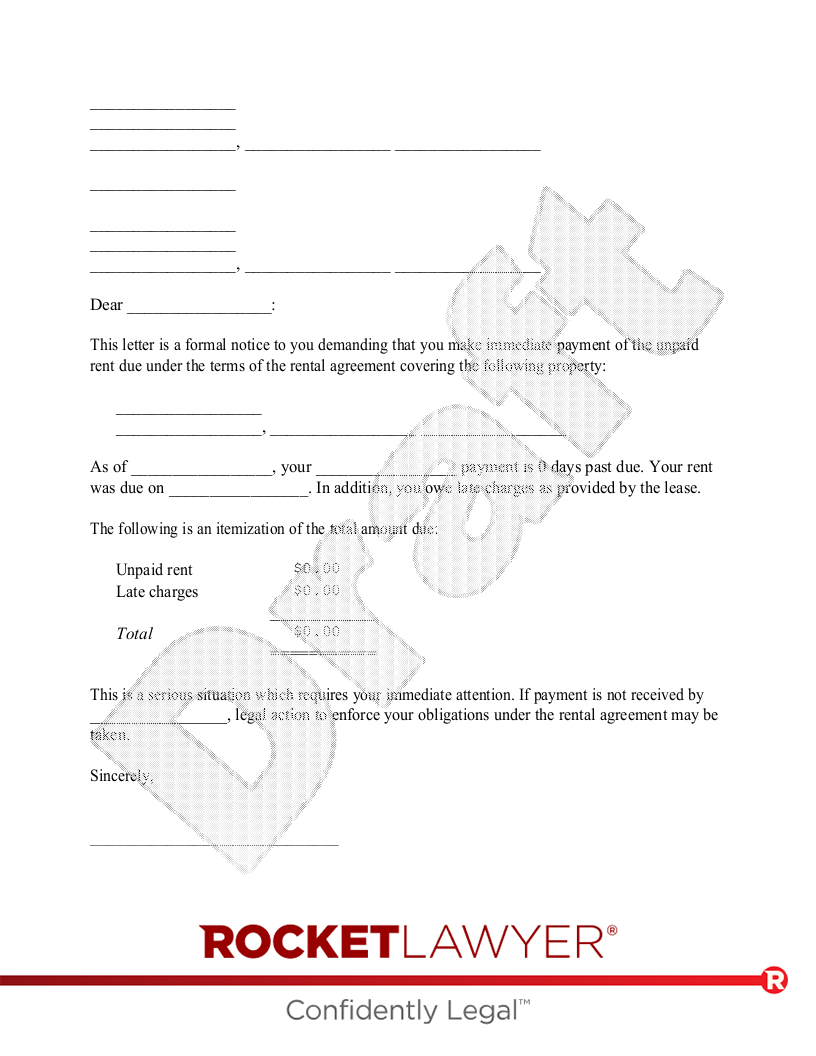How do I approach tenants about late rent so they actually pay?
The first step to collecting late rent involves communicating with your tenant. Often, a phone call or a text message reminder may prompt your tenant to pay. After all, it is frequently a simple mistake. Being friendly, yet direct, can help you understand whether additional action may be necessary to protect your rights. If a tenant does not respond, a landlord may want to give their tenant a Late Rent Notice to prompt them to pay past-due rent within a certain time period.
From the start, you may want to set up clear expectations with tenants, and make paying rent as easy as possible, to minimize potential late rent payments. Landlords may set up automatic text message or email reminders for their tenants a few days before the rent is due, with their permission. Charging late fees may also be an option for landlords, if doing so is included in the Lease Agreement.
How can I work with tenants that are struggling financially?
If a tenant fails to pay their rent on time or after you remind them about the past-due rent, and you are not really looking to evict them, you may want to talk to your tenant about what is going on. When tenants struggle financially, like when any other person struggles with almost anything, they may not know where to reach out for help. If they do not want to communicate with you, you may still be able to provide them with information about various resources that may be available to them. You may want to seek out rental assistance programs in your area and gather some information about their programs.
If you believe the tenant can either get the help they need or get back on their feet, you may want to consider offering them a Late Rent Payment Plan.
What can I do if a tenant withholds rent until repairs are completed?
If a rent payment is late because a tenant refuses to pay rent until a maintenance issue is resolved or repaired, landlords may want to look into the state and local laws about withholding rent in order to figure out their next steps. It may sometimes be legal for tenants to do this, or to pay for repairs and deduct the amount from their rent. Most state and local laws, however, require that this be done in a particular way. After understanding your legal position, it is usually possible to work out a compromise to get the property repaired and rent paid. To easily learn about your state and local requirements, it can be helpful to talk to a Rocket Legal Pro™.
Are there options besides eviction?
If a tenant still does not pay the rent they owe after you provide notice and some additional time, or offer them a Late Rent Payment Plan, you may still want to consider options besides eviction. Evictions are costly and time consuming. You may be able to negotiate a move out with your tenant that lets you both avoid the eviction process.
It can be a good idea to start by sending an Eviction Notice. The process for evicting a tenant varies from state to state and sometimes even between cities, so it's important to check your local laws before beginning an eviction action. When you send the Eviction Notice, however, it typically provides a deadline for a tenant to either move out, or fix the problem causing you to evict them. After that deadline passes, a landlord can then file the eviction lawsuit with their local court. Having a valid Eviction Notice can provide a landlord with strong leverage to negotiate a move out or payment of back rent with a tenant.
Generally, to get a tenant out of a rented property unwillingly, eviction is the only option. Landlords may want to remember that taking actions themselves can lead to severe legal consequences. Additionally, it is helpful to keep good records of all of their interactions with tenants, including letters and notices, notes about phone calls, and records of rent payments.
If you have more questions about collecting late rent or working with your tenants, reach out to a Rocket Legal Pro™ for affordable legal advice.
Please note: This page offers general legal information, not but not legal advice tailored for your specific legal situation. Rocket Lawyer Incorporated isn't a law firm or a substitute for one. For further information on this topic, you can Ask a Legal Pro.
